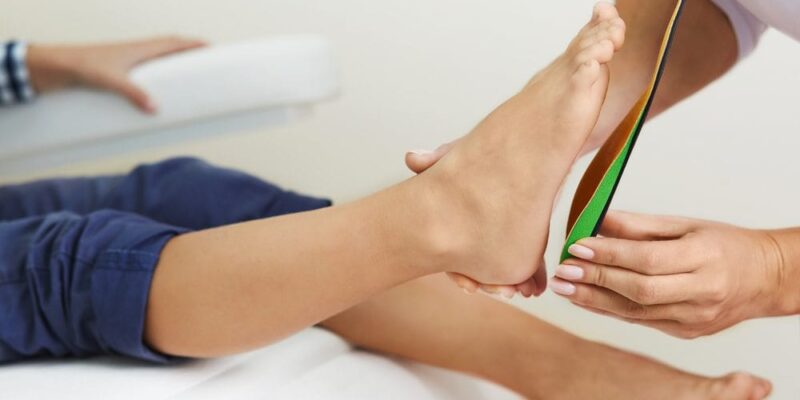Unlike flimsy drugstore insoles, which typically last only a few months or weeks, our orthotics can provide effective foot pain relief for years.
But, unfortunately, nothing lasts forever, especially if it’s designed to be comfortable to wear while being walked on every day. So even the best orthotics will need to be replaced at some point.
As a result, knowing how long you can expect your shoe insoles to last and what to look for in an “ageing” pair is extremely beneficial. The goal is to have your orthotics refurbished or replaced before they stop supporting and protecting your feet!
Unfortunately, determining that point isn’t always so simple. While a typical custom orthotic may last 2-3 years on average, not every case is the same. Some people need to replace theirs every year, while others can get five years or more (sometimes much more) out of theirs.
In other words, it truly is a case-by-case situation. But, as previously stated, you can still learn to recognise the early warning signs and come in for your yearly orthotics checkup to ensure you are getting the most out of your orthotics for their full service life—without having to wait too long to upgrade!
Factors That Can Shorten the Life of Your Orthotics
Again, custom orthotics are built to last, and we aim to give you as much use as possible from each pair. However, some consistent factors can help determine whether your specific orthotics will last longer or shorter than expected. These are some examples:
- Construction materials. A pair of orthotics made of a semi-rigid material, such as graphite or carbon fibre, may be expected to last slightly longer than orthotics made of very soft and squishy materials.
- How frequently you wear them. Most of our orthotics patients are instructed to wear them at all times. Some people, however, may only require orthotics for specific shoes or activities, or you may have different pairs of orthotics for different pairs of shoes. They’ll last longer if you don’t walk on them daily or only for a few hours.
- Your way of life. People who spend a lot of time standing and walking (or even running and jumping) will wear out their orthotics faster than those who spend most of their time sitting.
- Your physical body. Let’s put it this way: an NFL linebacker’s orthotics will probably wear out faster than a 90-pound grandmother’s—and not just because he leads a more active lifestyle. The more weight you have, the more strain you will put on your inserts.
- Significant life or medical events Custom orthotics are made to fit a specific foot shape and gait mechanics. Unfortunately, major events such as surgery or pregnancy can impact both. As a result, even if your orthotics are not physically compromised, they may no longer be what you require.
- The straightforward passage of time. We highlighted pregnancy and surgery as events that can drastically alter your feet or gait in a short period. But the truth is that our feet change shape gradually throughout our lives due to normal ageing and use. As a result, even if your orthotics are in excellent condition, they may need to be re-casted and replaced after many years of use.








Comments